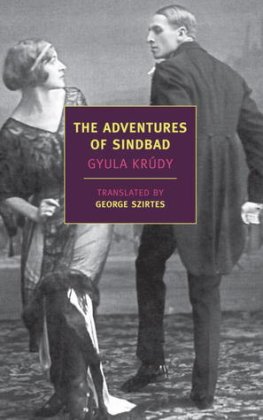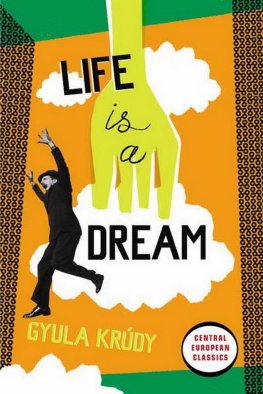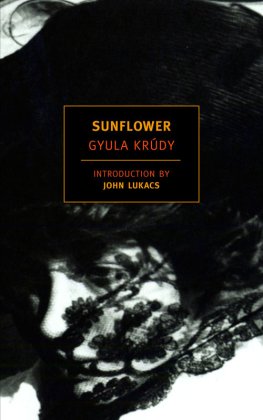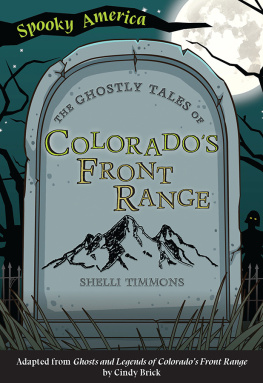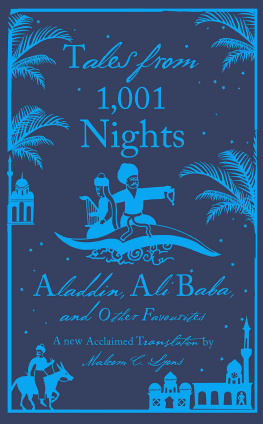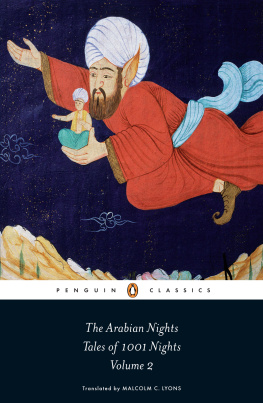Gyula Krdy
The Adventures of Sindbad
GYULA KRDY (18781933) was born in Nyregyhza in northeastern Hungary. His mother had been a maid for the aristocratic Krdy family, and she and his father, a lawyer, did not marry until Gyula was seventeen. Krdy began writing short stories and publishing brief newspaper pieces while still in his teens. Rebelling against his fathers wish that he become a lawyer, he worked as a newspaper editor for several years before moving to Budapest, where he, his wife, and two children lived off the money he made as a writer of short stories. In 1911 he found success with Sindbads Youth, the first of his books recounting the exploits of his fictional alter ego. Krdys subsequent novels about contemporary Budapest, including The Crimson Coach (1914) and Sunflower (1918; available from NYRB Classics), proved popular during the First World War and the Hungarian Revolution, but his drinking, gambling, and philandering left him broke and led to the dissolution of his first marriage. During the late 1920s and early 1930s, Krdy suffered from declining health and a diminishing readership, even as he was awarded Hungarys most prestigious literary award, the Baumgarten Prize. Forgotten in the years after his death, Krdy was rediscovered in 1940, when Sndor Mrai published Sindbad Comes Home, a fictionalized account of Krdys last day. The success of the book led to a revival of Krdys works and to his recognition as one of the greatest Hungarian writers.
GEORGE SZIRTES is a Hungarian-born English poet and translator. He received the T.S. Eliot Prize for Reel (2004), and his New and Collected Poems were published in 2008. As a translator of poetry and fiction he has won a variety of prizes and awards, including the European Poetry Translation Prize and the Dry Prize.
It is a considerable achievement to have turned yourself into a literary cult, to have your name associated not only with particular districts of your capital city but with an entire mode of feeling. In Hungary, the terms Krdyesque and the world of Krdy have a currency which extends beyond books and conjures an experience comprised of the nostalgic, the fantastic and the ironic. It is even more remarkable that this experience should be conveyed in a literary style that anticipates both stream of consciousness modernism and the magic realism of contemporary Latin American writers. Krdys work, in other words, is both of its time and outside it. It encapsulates a passing world of manners but turns it into illusion and establishes that illusion as a form of sensibility. In so doing it accomplishes a quiet revolution that opens the possibilities of narrative without ever appearing unnatural.
Gyula Krdy was born in 1878, in Nyregyhza, one of the bigger towns in eastern Hungary at the foot of the Carpathian mountains. The name of the town suggests birches (nyr means birch) and the whole area is known as the birch country. Krdys family was Catholic, and his father, a lawyer, was a member of the local minor gentry. The author was born in the old family house, but the household wasnt entirely conventional as his father lived with a common-law wife whom he married only at the end of his life. (His grandfather, a notable combatant in the 1848 revolution had himself been something of a libertine.) For four generations one son in the family had always been christened Gyula.
Krdy wasnt particularly good at school. Like Sindbad, the hero of this book, he was educated in the Piarist establishment at Podolin, originally in Hungary, but then absorbed into Slovakia following the First World War. He started writing at an early age, and his first short story was accepted by the local paper when he was only thirteen. Within three years he had written some hundred stories.
Still in his teens, he ran away from home and sought work with the journals of the larger towns of eastern Hungary and Transylvania at that time also part of Hungary. His father disinherited him and he lived from hand to mouth a gambler, drinker, womaniser, bon viveur and occasional duellist. He was not quite eighteen when he arrived in Budapest in 1896. The date is significant for it supposedly marked one thousand years of Magyar settlement in the Carpathian basin and the founding of the Hungarian state. A world fair was arranged to commemorate this millennium. Since 1867 Budapest had been the fastest growing city in Europe and the Millennial Fair, with its blending of historical pageant and technological progress, marked the apex of this development. The worlds second underground railway system the first was in London was opened in Budapest in 1896. Europes largest stock exchange had been finished in Budapest the previous year and the Hungarian Parliament, the largest parliament building in the world at that time, was close to completion. Hungary had modern art and modern literature, an active commercial sector and a busy cosmopolitan culture. It had theatre, opera and its own national literary epics.
When Krdy first moved to Budapest he had intended to be a poet but no poems were forthcoming; stories and journalism took all his attention. Handsome and charismatic, at the age of twenty he married a Jewish writer and schoolteacher called Bella Spiegler who wrote under the pseudonym of Satanella. By that time his first volume of stories had been published and he was writing for most of the major journals and periodicals of Budapest. Bella was older than him by some years and bore him four children, though marriage for Krdy was a far from stable domestic arrangement. He lived on credit and advances and was rarely at home; people especially women fell in love with him and were happy to support him.
All this makes Krdy sound like just another of those playboy-scribblers of the fin de sicle. In England he might have fallen off a bar stool like Lionel Johnson, and that would have been the end of him. But Krdy was not of the Celtic Twilight temperament and his writing, though ornate, complex and aesthetic, was far more robust and individual. At its best it was recognised as an extraordinary enterprise which established not only a style but a heightened sensuous world, a Hungary of the imagination that Hungarians found both seductive and recognisable. This world encompassed both the provinces from which he came and Budapest.
The historian John Lukcs observes that there was something rakish and romantic about the sexual life of the capital. Women outnumbered men. There were many high-class brothels, gambling dens, casinos, races and other amusements. Assignations in the Biedermeyer apartments of Pest, on the commercial left bank of the Danube, might be discreet but they were certainly not uncommon. There were fine cheap restaurants, cafs where writers and lovers were welcome, with live gypsy bands on hand to entertain them.
In many ways Hungary was still a feudal society. Out in the country, where Krdy was born, peasants were tied to the service of the great landlords and conditions were harsh. Austria regarded the whole of Hungary as a sleepy, potentially barbaric province with one foot in modern Europe, the other in the Near East. The Hungarians formed a linguistic and ethnic minority in the dual monarchy led by Austria, but Hungary had many ethnic minorities of its own: Romanians and Slovaks, as well as Gypsies. Its territory was three times the size of current Hungary and extended from the Carpathians through the great plains of the central basin to the Adriatic seaboard with its port of Fiume now Rijeka, in Slovenia. The impoverished minor nobility lived in country residences and small towns, maintaining as much of their manners as remained possible under the circumstances. The old hierarchies were largely observed and codes of courtesy deeply valued.

